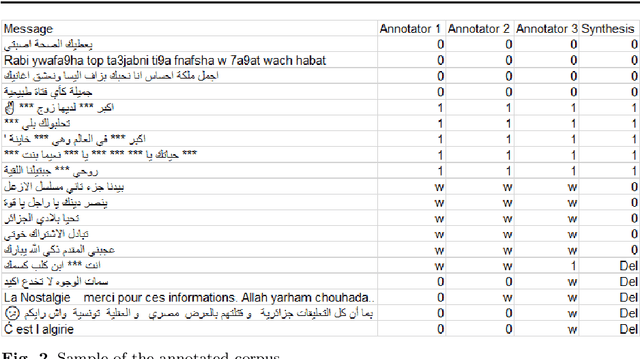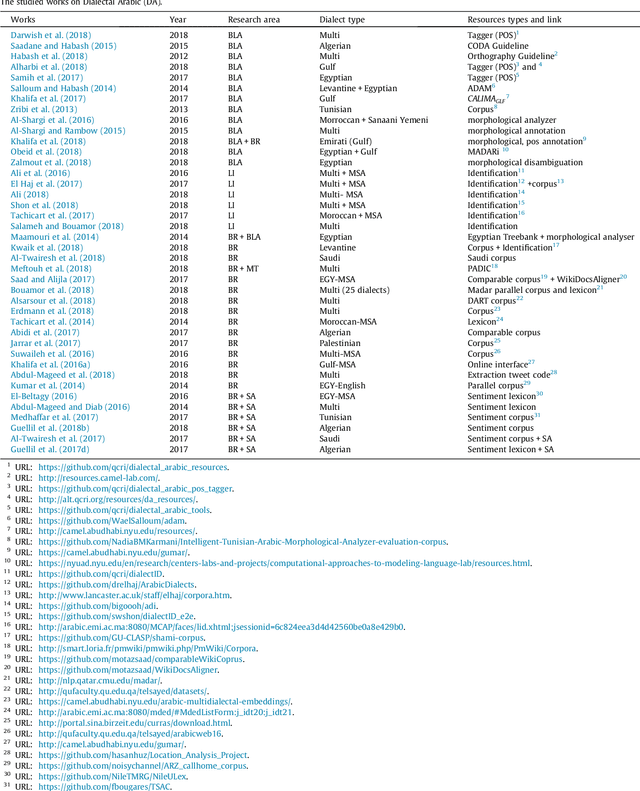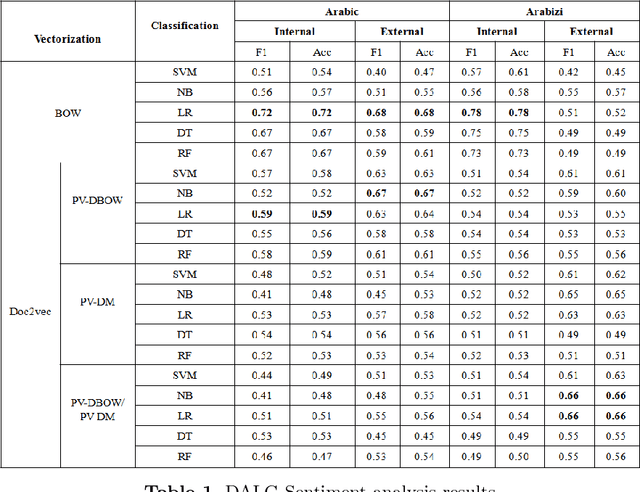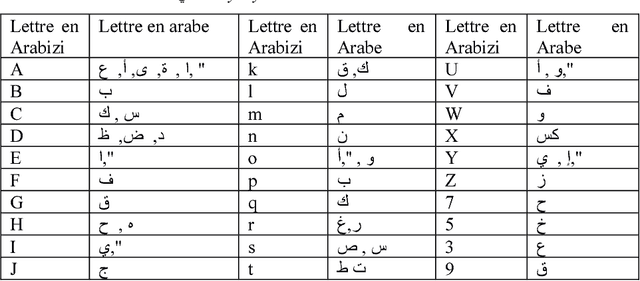Faical Azouaou
A Survey of Plagiarism Detection Systems: Case of Use with English, French and Arabic Languages
Jan 10, 2022



Abstract:In academia, plagiarism is certainly not an emerging concern, but it became of a greater magnitude with the popularisation of the Internet and the ease of access to a worldwide source of content, rendering human-only intervention insufficient. Despite that, plagiarism is far from being an unaddressed problem, as computer-assisted plagiarism detection is currently an active area of research that falls within the field of Information Retrieval (IR) and Natural Language Processing (NLP). Many software solutions emerged to help fulfil this task, and this paper presents an overview of plagiarism detection systems for use in Arabic, French, and English academic and educational settings. The comparison was held between eight systems and was performed with respect to their features, usability, technical aspects, as well as their performance in detecting three levels of obfuscation from different sources: verbatim, paraphrase, and cross-language plagiarism. An indepth examination of technical forms of plagiarism was also performed in the context of this study. In addition, a survey of plagiarism typologies and classifications proposed by different authors is provided.
Sexism detection: The first corpus in Algerian dialect with a code-switching in Arabic/ French and English
Apr 03, 2021



Abstract:In this paper, an approach for hate speech detection against women in Arabic community on social media (e.g. Youtube) is proposed. In the literature, similar works have been presented for other languages such as English. However, to the best of our knowledge, not much work has been conducted in the Arabic language. A new hate speech corpus (Arabic\_fr\_en) is developed using three different annotators. For corpus validation, three different machine learning algorithms are used, including deep Convolutional Neural Network (CNN), long short-term memory (LSTM) network and Bi-directional LSTM (Bi-LSTM) network. Simulation results demonstrate the best performance of the CNN model, which achieved F1-score up to 86\% for the unbalanced corpus as compared to LSTM and Bi-LSTM.
Arabic natural language processing: An overview
Mar 07, 2019



Abstract:Arabic is recognised as the 4th most used language of the Internet. Arabic has three main varieties: (1) classical Arabic (CA), (2) Modern Standard Arabic (MSA), (3) Arabic Dialect (AD). MSA and AD could be written either in Arabic or in Roman script (Arabizi), which corresponds to Arabic written with Latin letters, numerals and punctuation. Due to the complexity of this language and the number of corresponding challenges for NLP, many surveys have been conducted, in order to synthesise the work done on Arabic. However these surveys principally focus on two varieties of Arabic (MSA and AD, written in Arabic letters only), they are slightly old (no such survey since 2015) and therefore do not cover recent resources and tools. To bridge the gap, we propose a survey focusing on 90 recent research papers (74% of which were published after 2015). Our study presents and classifies the work done on the three varieties of Arabic, by concentrating on both Arabic and Arabizi, and associates each work to its publicly available resources whenever available.
SentiALG: Automated Corpus Annotation for Algerian Sentiment Analysis
Aug 15, 2018

Abstract:Data annotation is an important but time-consuming and costly procedure. To sort a text into two classes, the very first thing we need is a good annotation guideline, establishing what is required to qualify for each class. In the literature, the difficulties associated with an appropriate data annotation has been underestimated. In this paper, we present a novel approach to automatically construct an annotated sentiment corpus for Algerian dialect (a Maghrebi Arabic dialect). The construction of this corpus is based on an Algerian sentiment lexicon that is also constructed automatically. The presented work deals with the two widely used scripts on Arabic social media: Arabic and Arabizi. The proposed approach automatically constructs a sentiment corpus containing 8000 messages (where 4000 are dedicated to Arabic and 4000 to Arabizi). The achieved F1-score is up to 72% and 78% for an Arabic and Arabizi test sets, respectively. Ongoing work is aimed at integrating transliteration process for Arabizi messages to further improve the obtained results.
Hybrid approach for transliteration of Algerian arabizi: a primary study
Aug 10, 2018

Abstract:A hybrid approach for the transliteration of Algerian Arabizi: A primary study In this paper, we present a hybrid approach for the transliteration of the Algerian Arabizi. We define a set of rules enable us the passage from Arabizi to Arabic. Through these rules, we generate a set of candidates for the transliteration of each Arabizi word into arabic. Then, we extract the best candidate. This approach was evaluated by using three test corpora, and the obtained results show an improvement of the precision score which is equal to 75.11% for the best result. These results allow us to verify that our approach is very competitive comparing to others works that treat Arabizi transliteration in general. Keywords: Arabizi, Dialecte Alg\'erien, Arabizi Alg\'erien, Translit\'eration.
* in French
 Add to Chrome
Add to Chrome Add to Firefox
Add to Firefox Add to Edge
Add to Edge